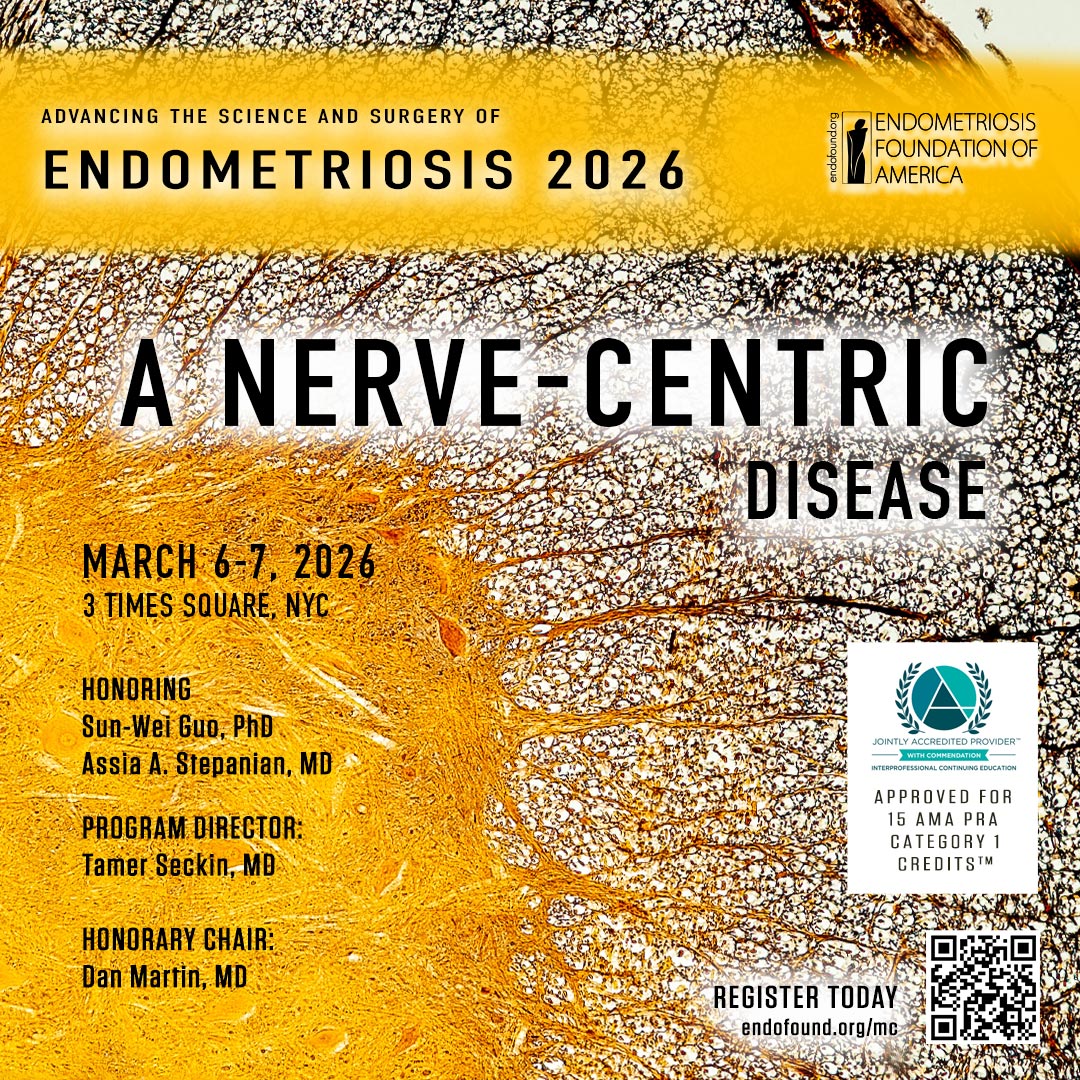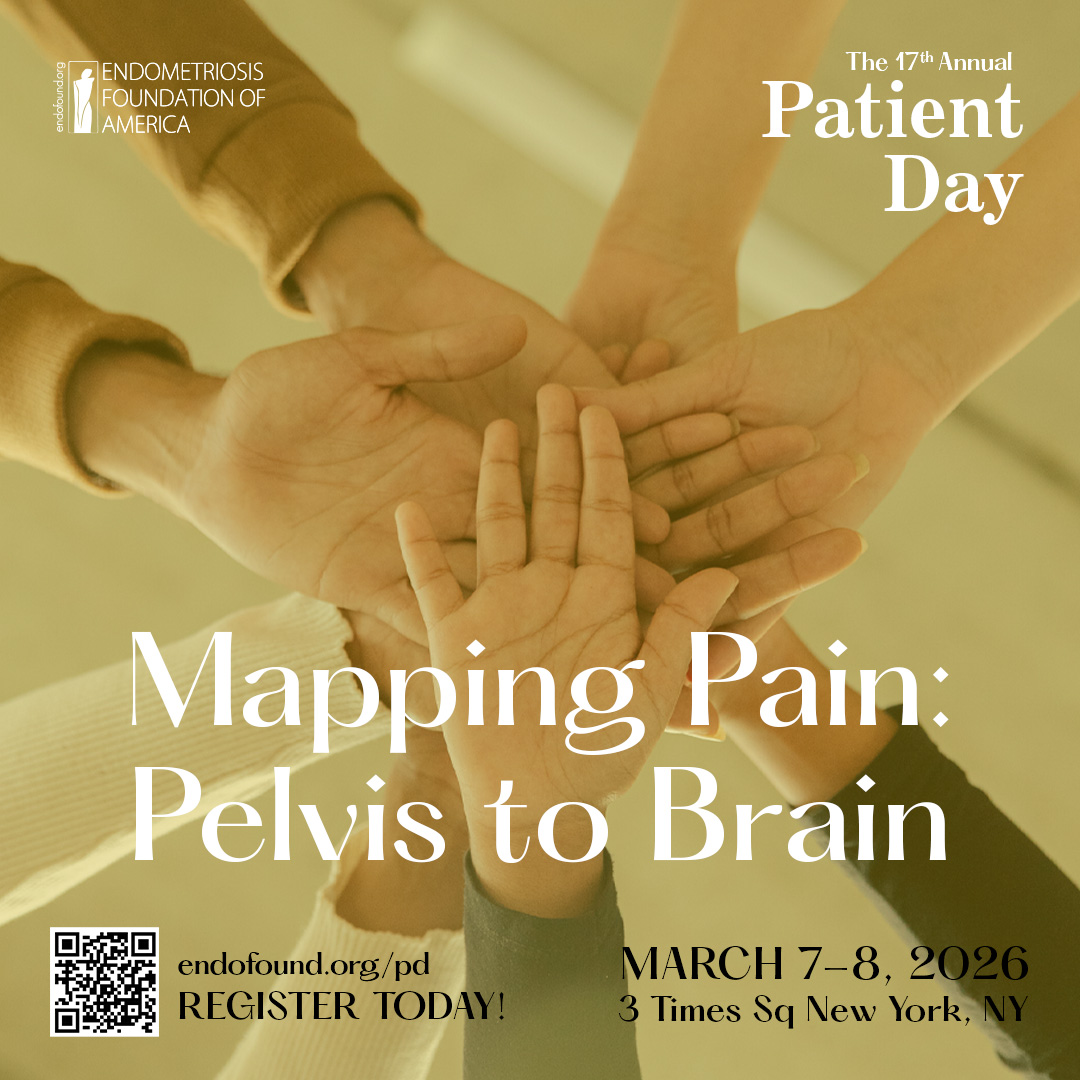EFA Medical Conference 2017: "Endometriosis: hormonal or surgical? My reality!" Presentation by Dr. Harry Reich
Dr. Harry Reich talks about surgical techniques and tools that can be used in the treatment of endometriosis.
Key Points Lay Summary
EFA Medical Conference 2017: "Cells Are the New Cure" Presentation by Dr. Max Gomez
Over the course of his presentation, Dr. Max Gomez illustrates the various ways that cells can be used as effective therapies and cures.
Key Points Lay Summary
A Combination Treatment of Psychotherapy With Somatosensory Stimulation for Pain Reduction
This publication uses this idea that "Endometriosis-related pain may be psychological in nature" and suggests that a combination treatment of "Psychotherapy With Somatosensory Stimulation" will counteract the pain.
Key Points Lay Summary
What is the role of hormones on the function and development of the brain?
Hormones and the Brain: Theory and Practice, by Dr, Sarah L. Berga
Key Points Lay Summary
Reducing side effect of estrogen based therapy by using Tissue-Selective Estrogen Complex
Mechanisms behind the Endometrial and Breast Safety of Tissue-Selective Estrogen Complex
Key Points Lay Summary
EFA.MC.2017.“The Abnormal Embryos That Aren’t”,“Tens of thousands of women thought they couldn't have babies: But what if they could.”Dr. Norbert Gleicher Dr. Monica Halem
Preimplantation genetic screening may be misleading many women into thinking that they cannot conceive.
Key Points Lay Summary
Progesterone resistance can cause endometriosis
Impaired progesterone signaling can be one of the mechanisms of endometriosis development; therefore, therapies directed toward correcting this progesterone inaction can be promising for endometriosis treatment and prevention.
Key Points Lay Summary
EFA Medical Conference 2017: EFA Research Grants Presentation by Dr. Serin Seckin
Dr. Serin Seckin briefly discussed some of the projects that received part of the $400,000 in research grants that the EFA awarded this past year.
Key Points Lay Summary












